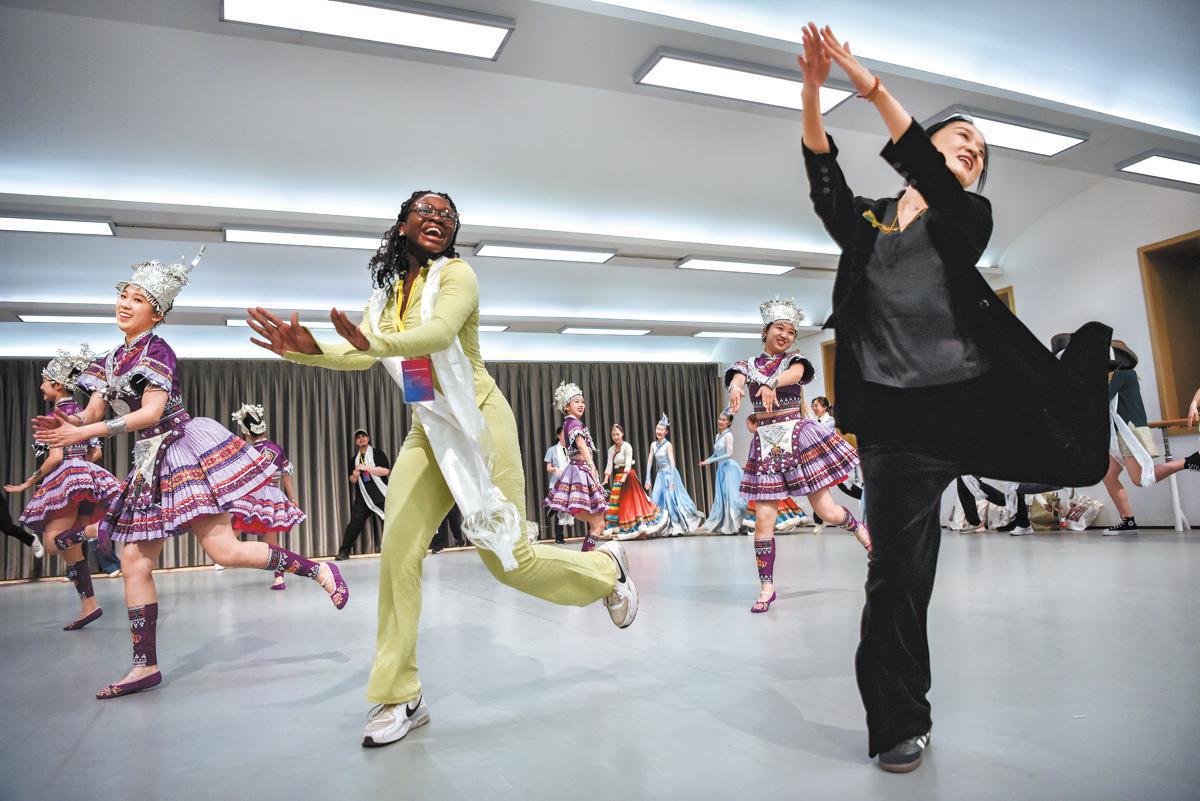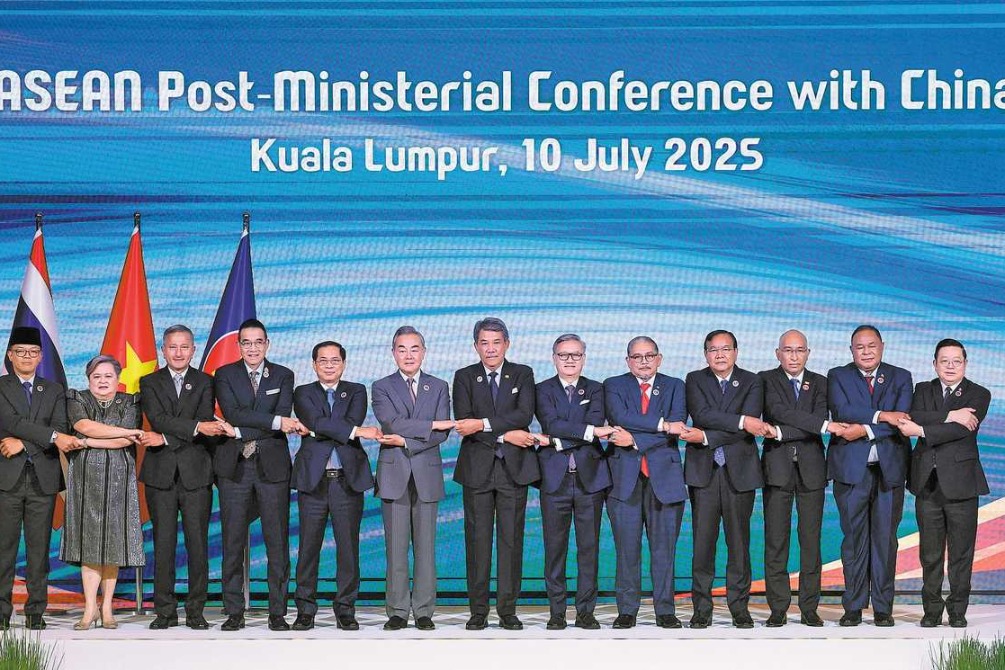Cultural link helps China, US better understand each other


In a world riddled with political and economic competition, it remains universally acknowledged that cultural appreciation forms the cornerstone of international understanding. Despite current tensions between the United States and China, the currency of soft power — based on cultural understanding and mutual respect, especially among young people — can bring about peace and prosperity.
Following President Xi Jinping's invitation to 50,000 American youths to visit China over the next five years, China's central and provincial governments are bolstering efforts to give them opportunities for engagement with Chinese society, realizing the strategic value of cultural familiarity.
Short-term exchange programs for students and intensive Mandarin language courses, for instance, improve language skills and foster a sophisticated understanding of China's long history and diverse cultural heritage.
The one-week immersion program that Duke Kunshan University and Jiangsu province developed for 70 students from Duke University and other American colleges powerfully exemplifies this investment in mutual understanding. This initiative, which will take place in August, promises to be an exciting voyage through the cultural, historical and economic strongholds of Nanjing, Suzhou and Shanghai — cities that have witnessed China's remarkable present and the ebb and flow of the country's storied past.
Short-term exchange programs apparently have the potential to improve understanding. However, a Harvard Business Review insight — a customer retained is several folds less costly than a new one acquired — suggests that investing in US students already enrolled in full-time degree programs in China could be more advantageous and economically cost-effective.
Schools such as DKU are trailblazers in providing a global-oriented degree education in a Chinese setting, giving students a global outlook and the capacity to prosper in a multicultural society. Immersed in China's educational and cultural environment, international students have the potential to become genuine ambassadors of cultural understanding, bridging gaps through their first-hand accounts.
As the executive vice chancellor of DKU, an English-speaking, research-oriented liberal arts and sciences university located just outside of Shanghai, I am quite familiar with the powerful results that these kinds of exchanges can deliver.
Consider the case of Peter Ballentine, an American student of the DKU Class of 2022. DKU prides itself on having a truly international campus community, with about 30 percent of its student body being international. International students account for no more than 20 percent of all students at most other universities. While attending DKU, Ballentine made friends with students from all over the world and worked together with his professors and fellow students on everything from the curriculum to the school's culture, which gave him invaluable experience collaborating with people from different cultural backgrounds. After graduation, he received funding from the National Science Foundation Graduate Research Fellowship Program of the United States for his work with a Duke University research team and is currently pursuing a PhD in electrical engineering at Columbia University.
By observing the success stories of Ballentine and many of his peers, it becomes clear to me that it is imperative to establish more incentives, such as scholarships, for American students to enroll in degree programs in China, live here, learn about its transformation into the second-largest economy in the world in merely four decades, something unprecedented in human history, and recognize the complexity of its culture.
It becomes even more urgent that more Americans can study full-time in China, especially considering that the number of Chinese students studying in the US far exceeds that of American students in China. That is a challenge not only for China but also for the US, regardless of whether the US considers China a major rival or a potential partner in solving global problems. This disparity suggests that Chinese students and likely future leaders of China are far more knowledgeable about the US than Americans are about China.
Of course, cultural exchanges, which go beyond student exchanges, include organizing academic and business conferences that emphasize global issues like public health and environmental conservation. As the two biggest economic powers, China and the US can use such forums to advance initiatives that prevent pandemics and address climate change.
In addition, China's history, culture and 59 UNESCO World Heritage sites remain huge attractions to many Westerners. More accessible or visa-free agreements may inspire more Americans to travel to China more than once by showcasing attractions beyond Beijing, Shanghai and Xi'an.
Linguistic proficiency is also essential for cultural diplomacy. More accessible Chinese-language training at institutions in the US will allow American students to engage more deeply with Chinese culture and ideas, building enduring appreciation and relationships.
Not to be overlooked is the role of sports and performing arts in diplomacy. Friendlies in soccer and basketball, along with global tours from institutions like the New York Philharmonic, convey heartfelt exchanges that create lasting memories for participants and spectators alike. As with the symbolic Ping-Pong Diplomacy 40 years ago, such events spawn friendships beyond the realm of politics. China's adorable envoys, the giant pandas, also have a unique role to play, as they transcend language and politics to generate goodwill and improve conservation.
In summary, the key to overcoming geopolitical tensions lies not necessarily in grand gestures but in a constant flow of cultural exchanges across a wide range of fields, including language, art, education, sports and wildlife diplomacy. Every little bit helps. Every single person-to-person interaction counts. By improving cultural understanding at the individual level, the US and China can develop a spirit of cooperation that is the best guarantee of long-lasting peace.
The author is executive vice chancellor and distinguished professor of social science at Duke Kunshan University and the John deButts professor of practice at Duke University's Fuqua School of Business.































